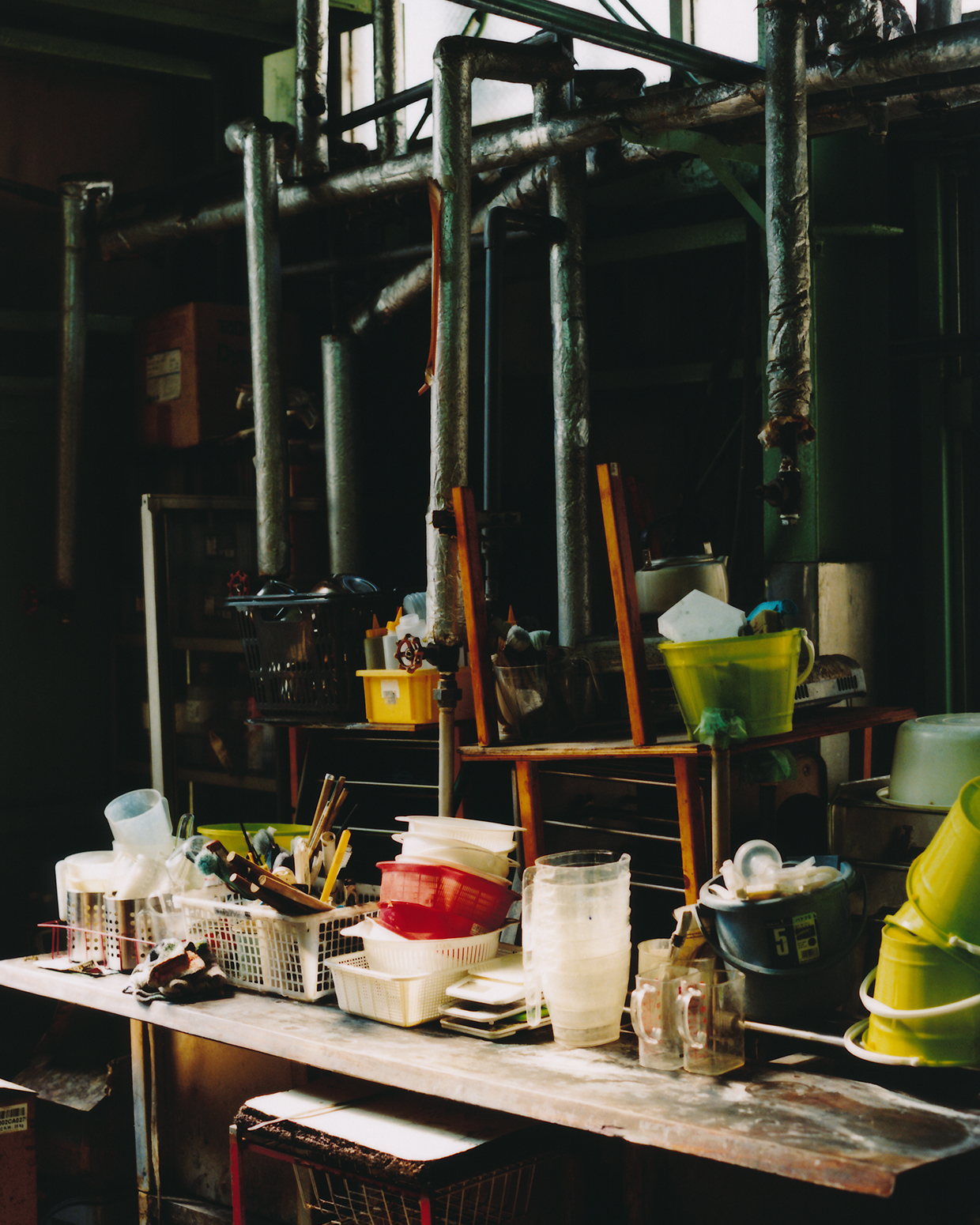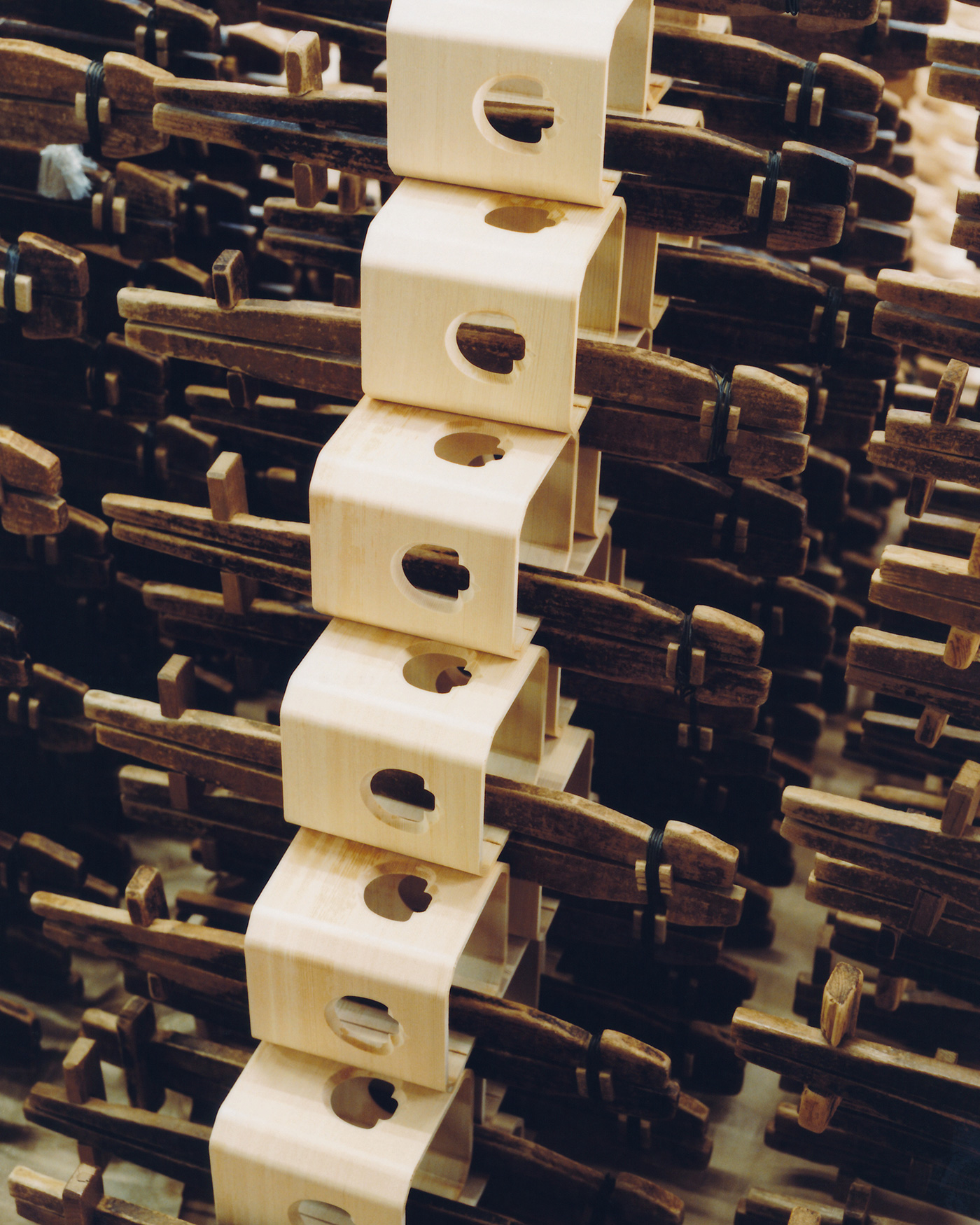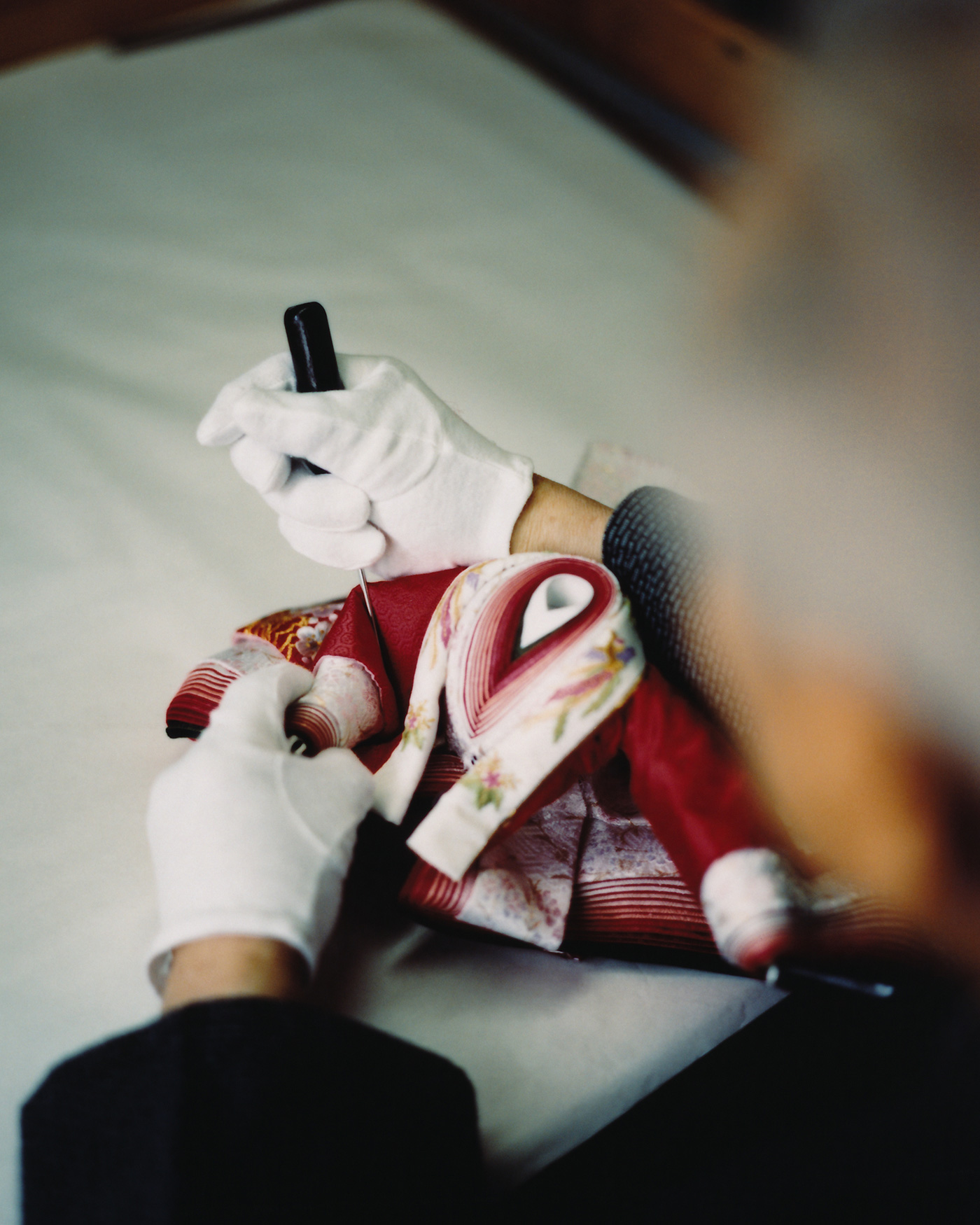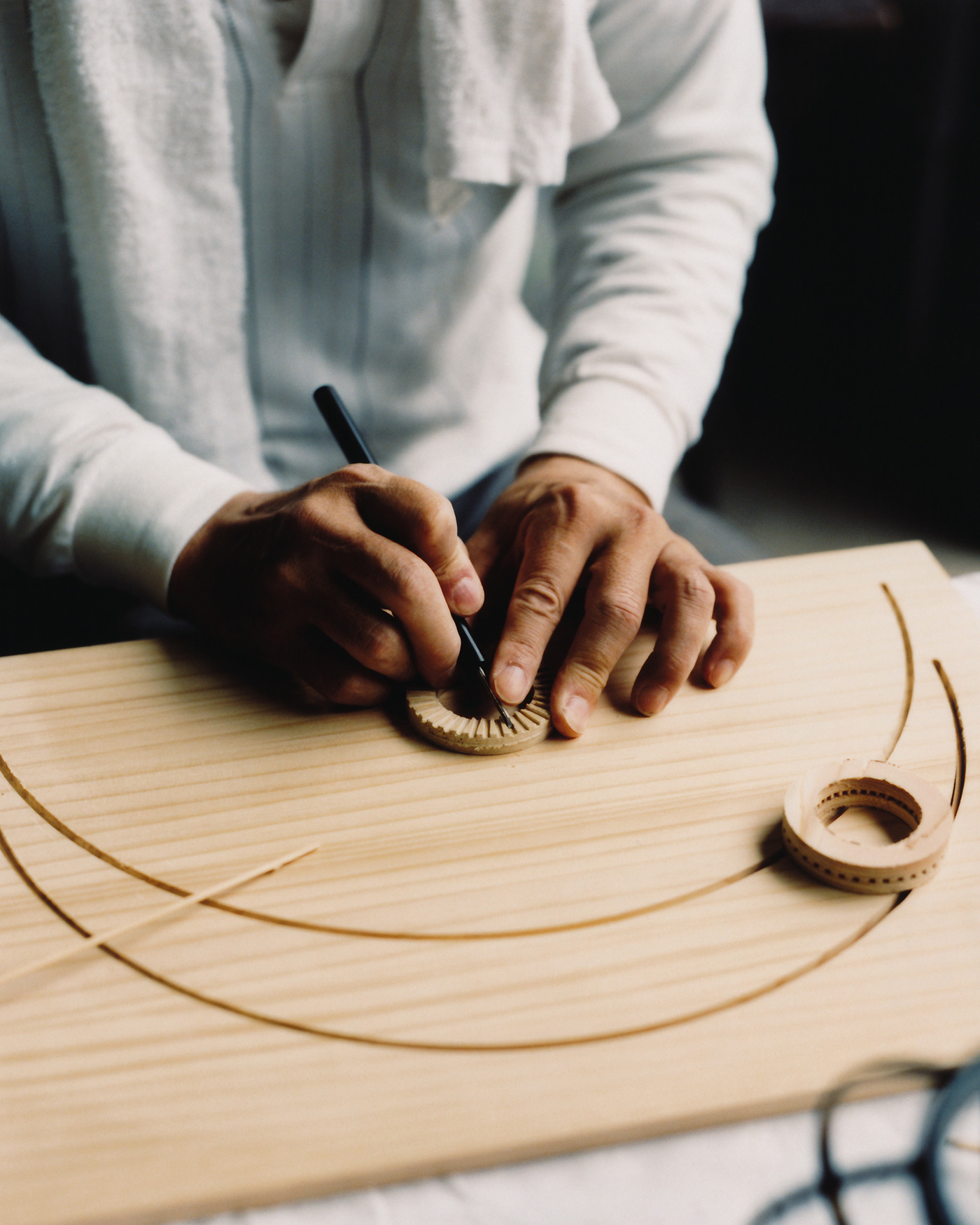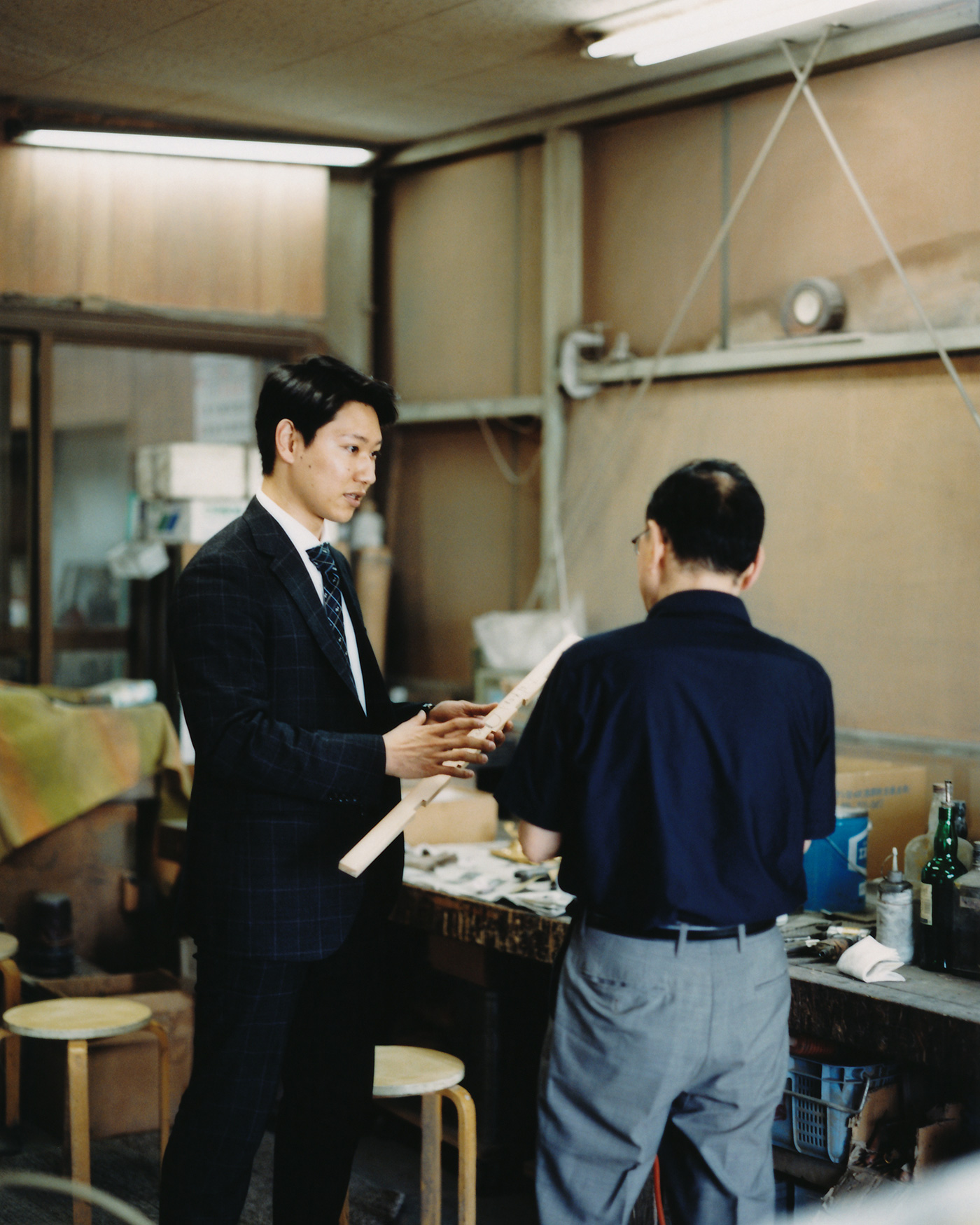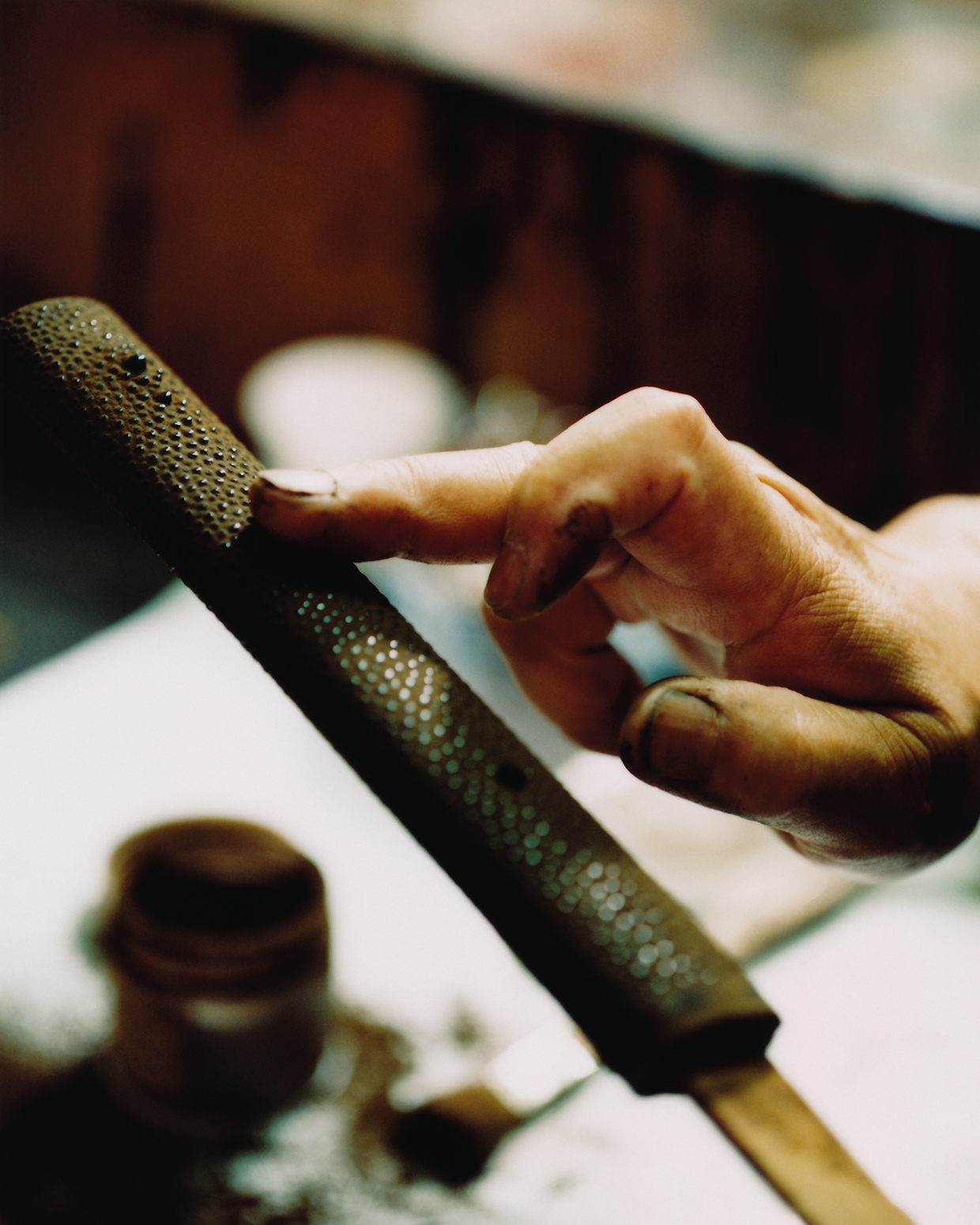In addition to kimonos, Yamakatsu Dyeing also does business in clothing and re-dyeing, right?
If we weren’t in the clothing and dyeing business, our company would probably be gone. We had Corona, and we didn’t have a kimono outing. I think we were somewhat better off because we were shifting to western clothes, not kimonos. While we were doing the dyeing and changing, the SDGs were also being called out, and we got quite a bit of coverage. I think it is a bit tough for companies that only do kimonos now.
Until I came here, Yamakatsu Dyeing had only done kimono dyeing. We have the same facilities for dyeing western clothes, but the dyes are completely different and the methods are also different, so we separate the days for dyeing western clothes and the days for dyeing black kimono. In the past, we used to do black dyeing every week, but now we only do montsuki once a month.

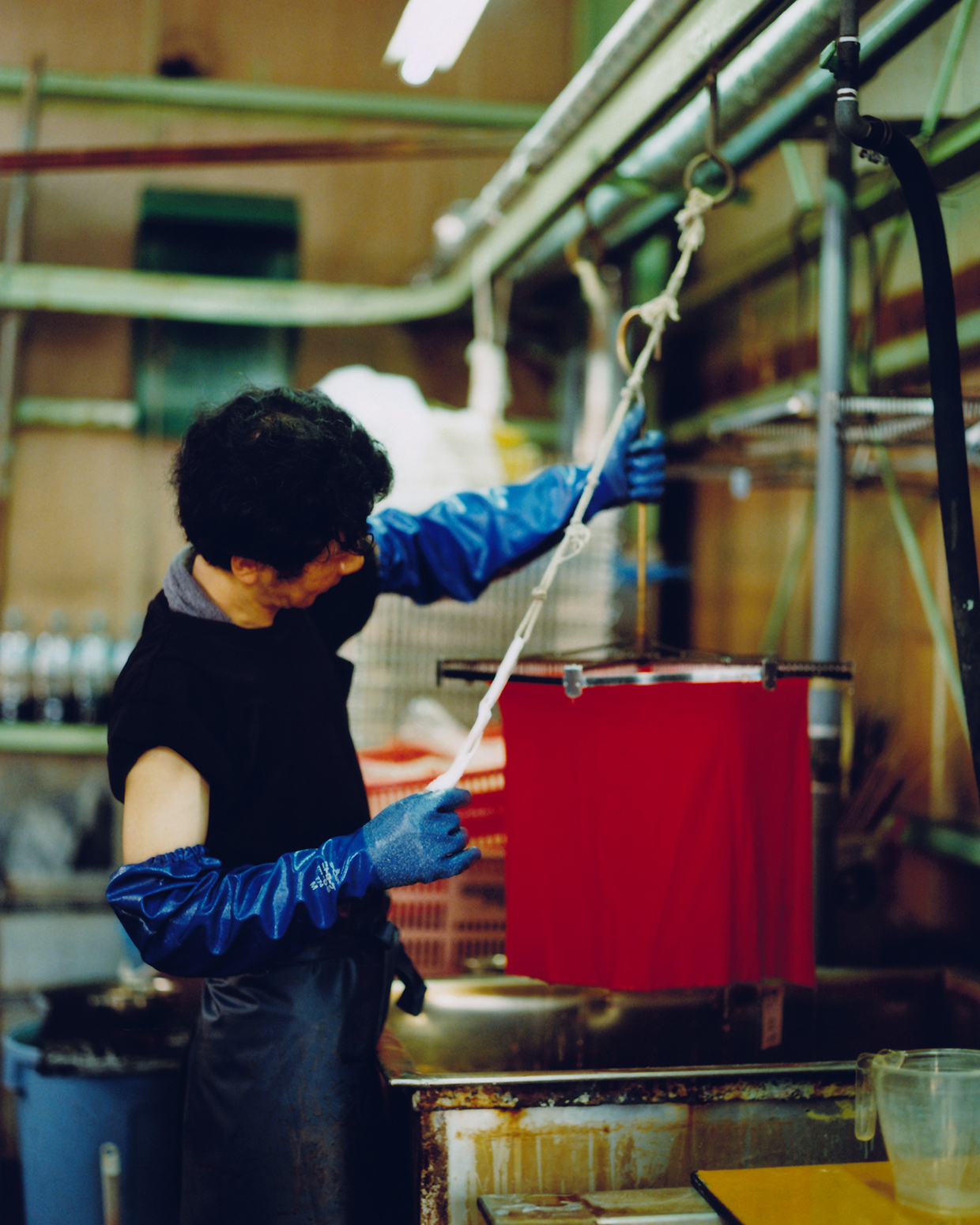
What kind of vision does Yamakatsu Dyeing have for the future transmission of technology?
In Italy, craftsmen are called “Meisters,” and their status is very high. We, too, must persevere until the Japanese craftspeople develop that kind of mindset. But first, we have to make money. If we can’t see a future for the next generation now, it would be a pity if we bring in the next generation. For that reason, we have to be able to tell them what we can do and what we can do next.
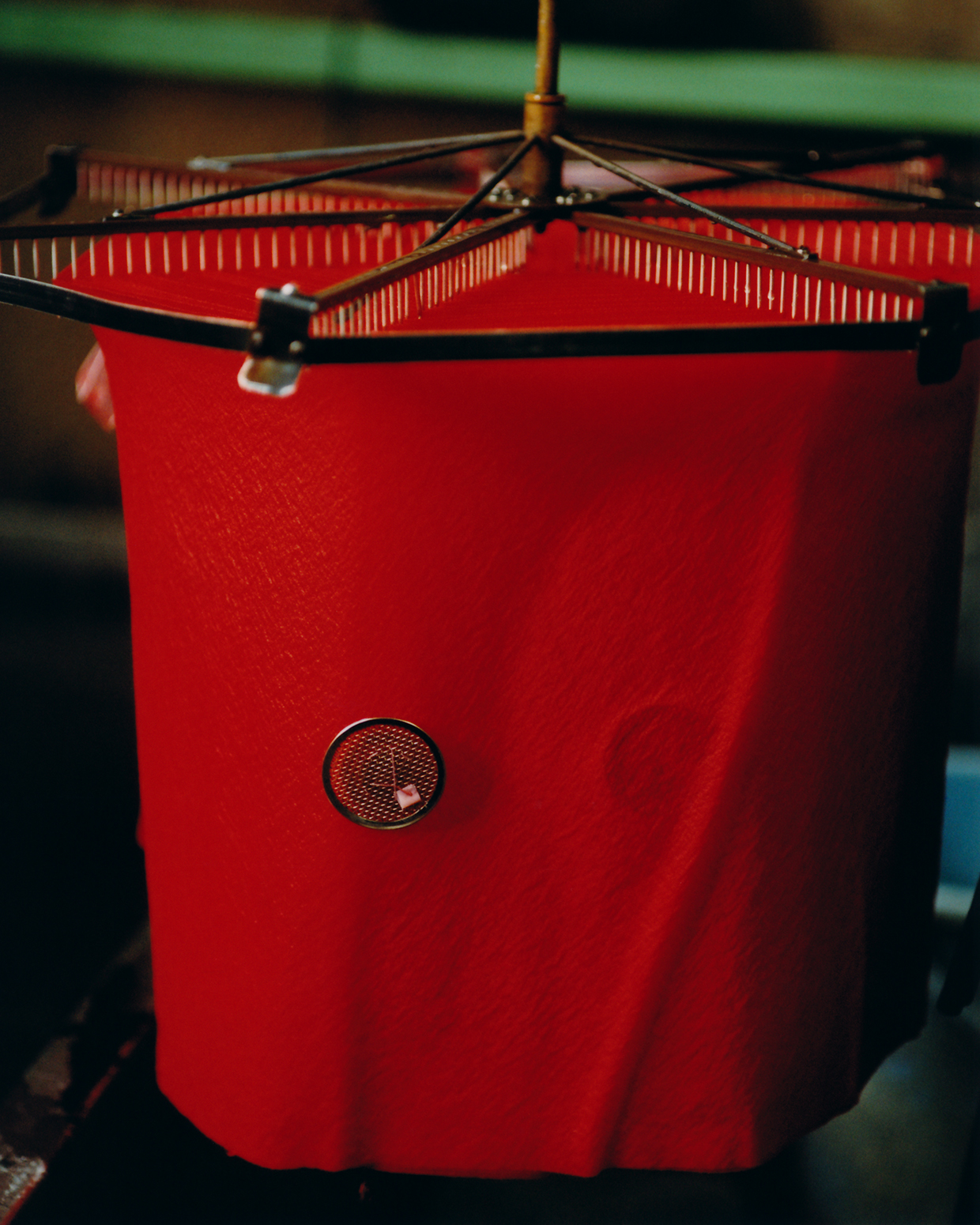
What does it mean to you, Mr. Nakamura, to make things by hand in this day and age?
We must aim for the ultimate in analog. I think that making things by hand is meaningful and has value, so we have to leave it behind. Eventually, I think it will become more valuable. If we stop making things by hand, people won’t be able to make things.
It is precisely because we make things by hand that they can be mechanized. I think it is through the imagination of making things with our hands that we can make things. If everything becomes a 3D printer, all the products will be the same. I think we will probably not have to use our brains anymore.
If we no longer have to use our hands to discuss and test this and that, then manufacturing itself will disappear. So, I think we have to protect such things.
The ultimate thing, even in this day and age, is hands. For example, Lexus’ top-of-the-line engines are all assembled by hand. We don’t use machines. It is not a single product, but it is a craftsmanship. That’s what we have to aim for. Aiming for the ultimate is a matter of course for us. I don’t think we should even think about mechanizing it, and we shouldn’t.
